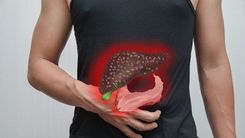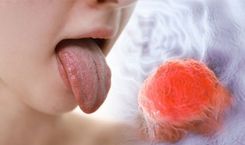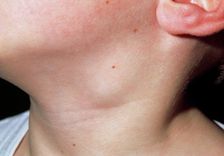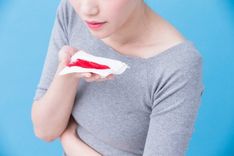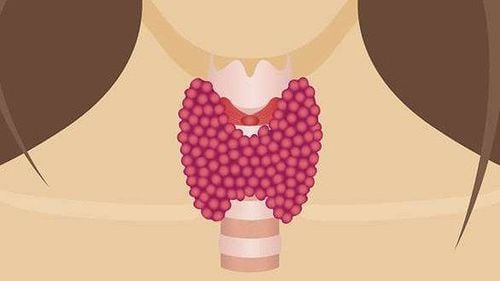Benign thyroid nodules is a common endocrine disease, especially in women. Besides medical adherence, dietary regimen plays an important role in supporting medical treatment. Hence, patients should know which types of food must be avoided in order to build a suitable diet and facilitate treatment.
1. What is a benign thyroid nodules?
The thyroid gland is a large endocrine gland in the body with many essential functions. It is shaped like a butterfly and located at the front of the neck. The thyroid secretes hormones that regulate metabolism, mineral balance, cardiovascular activity, and many other vital processes in the body. Individuals with thyroid issues may experience extreme fatigue, memory impairment, rapid weight gain or loss, constipation, dry skin, muscle pain, abnormal heartbeats, and various other symptoms. Thyroid nodules can be classified into two types: benign and malignant. Statistics indicate that benign thyroid nodules account for 95% of cases, while malignant nodules present only 5%. Notably, this condition is more common in women than in men. Benign thyroid nodules are the development of small nodules arising from the epithelial lining inside the thyroid gland. These nodules can sometimes secrete thyroid hormones, occasionally leading to hyperthyroidism, which requires treatment.
2. Which food should patients with benign thyroid nodules avoid?
Many people wonder what foods should be avoided when dealing with benign thyroid nodules. Below are some foods that patients with benign thyroid nodules should limit to support effective treatment:
2.1 Soy Products
Soy is often considered a healthful food; however, this is not the case for patients with thyroid nodules. According to experts, the isoflavones in soy could prevent the thyroid's ability to absorb iodine, thereby affecting hormone production. Therefore, individuals with thyroid nodules should limit their consumption of soy-based products, such as soy sauce, tofu, and soy milk.
2.2 Processed Foods
Processed foods contain additives and unhealthy calories that are not beneficial for thyroid nodules treatment. They can accelerate the growth of nodules, negatively impacting the treatment process. Therefore, patients with thyroid nodules should avoid fast food and pre-packaged, processed foods.
2.3 Animal Offal
Animal offal, such as liver, intestines, and heart, should be avoided by patients with benign thyroid nodules. These foods are rich in lipoic acid, which can adversely affect thyroid function. Lipoic acid may also reduce the effectiveness of thyroid treatments, making the treatment process more challenging and significantly prolonging treatment time.

2.4 Gluten-Containing Foods
Gluten, commonly found in wheat and barley, can affect the digestive system, particularly the intestines. Gluten-containing products are bread, cookies, cakes, etc. Approximately 10% of the population who are gluten-intolerant, can suffer bloating, indigestion, diarrhea, and abdominal pain in eating these foods. Additionally, gluten may trigger autoimmune responses, increasing the risk of hyperthyroidism or hypothyroidism. Many scientists suggest that a gluten-free diet may help prevent thyroid disorders.
2.5 Fiber
A high-fiber diet is often considered beneficial for health. However, this is not entirely true for patients with benign thyroid nodules. While fiber is good for digestion, excessive consumption can interfere with the absorption of thyroid medications and impact treatment effectiveness. Nevertheless, patients should not eliminate fiber completely, as it is essential for digestion. Instead, they should avoid consuming excessive amounts, especially close to their medication times.
2.6 Sugar and Artificial Sweeteners
Metabolic function in patients with thyroid nodules is often impaired. Excessive consumption of sugar or artificial sweeteners can lead to an incomplete pathway of processing sugar to energy in the body, resulting in weight gain and negatively affecting thyroid function.
2.7 Stimulants
The use of stimulants, including alcohol and carbonated drinks, is detrimental to health even for healthy individuals. For patients with thyroid nodules, avoiding alcohol, soft drinks, and other stimulants is crucial as these substances can disrupt thyroid activity and reduce the effectiveness of treatments.
2.8 Cruciferous Vegetables
Vegetables in the cruciferous family, such as cauliflower, cabbage, and broccoli, contain isothiocyanates, which can limit iodine absorption, particularly when consumed raw. Experts suggest that cooking these vegetables can exclude the negative effects of isothiocyanates. However, it is best to consult the doctor before consuming cruciferous vegetables.
2.9 Calcium-Containing Products
Patients with thyroid nodules who have undergone surgery may need synthetic thyroid hormones. When taking such medications, it is essential to avoid calcium-containing products (like milk and calcium supplements) as they can form complexes with the medication and hinder its absorption. Therefore, calcium-containing products should be consumed at a different time from thyroid medications.
2.9 Aspartame
Aspartame, an artificial sweetener, is associated with Graves' disease and various autoimmune conditions. It can trigger immune responses in the body, leading to the production of thyroid antibodies and thyroid inflammation.
3. What Should Patients with Benign Thyroid Nodules Eat?
Besides foods to avoid, certain foods are beneficial for individuals with benign thyroid nodules and should be added in their diet to enhance treatment effectiveness and speed up recovery. They are included:
- Fruits
Fresh fruits are an excellent source of vitamins (especially vitamin C) and antioxidants that strengthen the immune system. Patients with benign thyroid nodules are encouraged to include fresh fruits in their daily diet. - Iodine-Rich Foods
Iodine is an essential component in the production of thyroid hormones. Adding iodine-rich foods to the diet can help reduce the risk of thyroid nodules, limit nodule growth, and enhance effectiveness of thyroid hormone production. Foods high in iodine include table salt, seaweed, milk, and eggs. However, for individuals with hyperthyroidism or those undergoing radioactive iodine therapy, iodine intake should be discussed with a doctor. - Nuts and Seeds
Most nuts and seeds are rich in plant-based protein, magnesium, zinc, copper, and vitamins, which support thyroid function. Examples include cashews, pumpkin seeds, and almonds, which patients with benign thyroid nodules should incorporate into their diet.
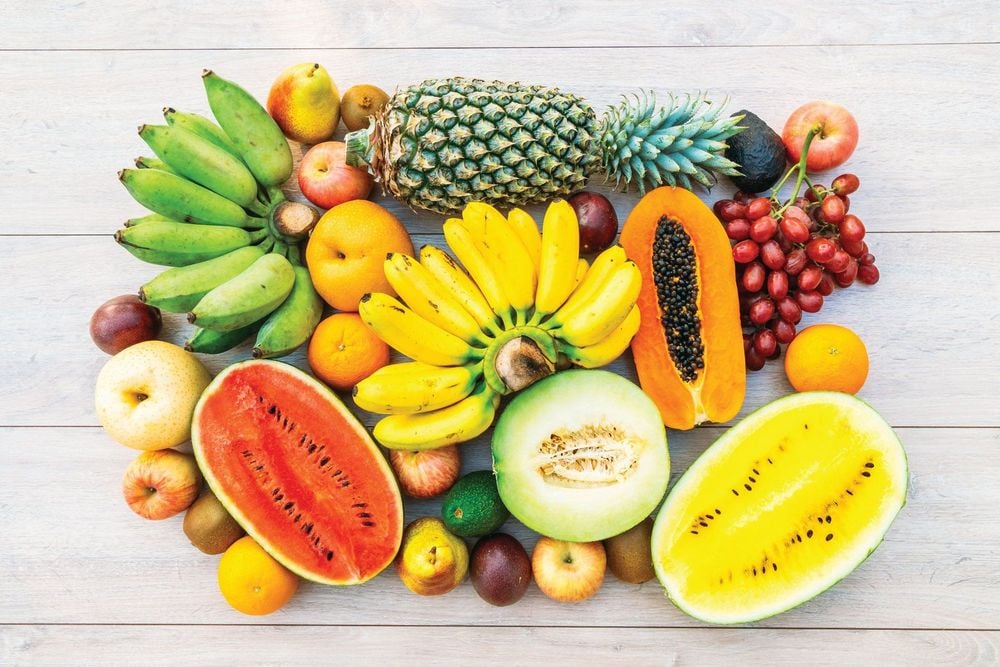
- Fish and seafood
Fish and various types of seafood are rich in healthy fats that are beneficial to the body. Additionally, seafood contains different types of vitamins which are necessary for optimal thyroid function.
In summary, understanding what foods to avoid when managing benign thyroid nodules is crucial for effective treatment. Alongside adhering to prescribed medications, patients should pay attention to their diet, avoiding harmful foods and increasing the intake of beneficial ones.
Please dial HOTLINE for more information or register for an appointment HERE. Download MyVinmec app to make appointments faster and to manage your bookings easily.
